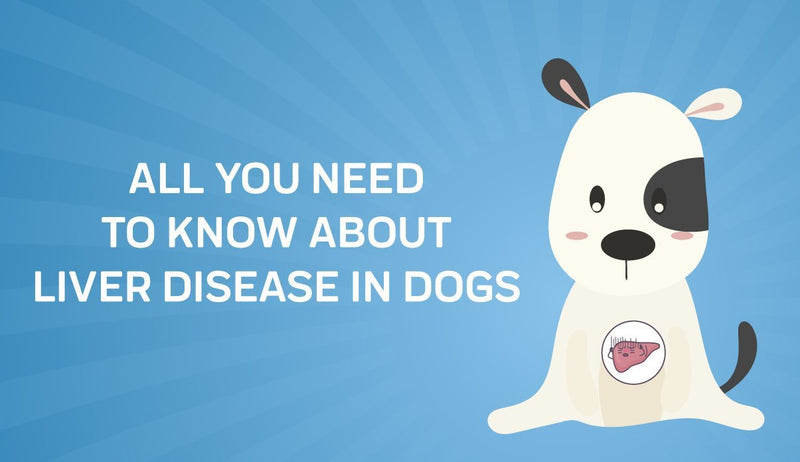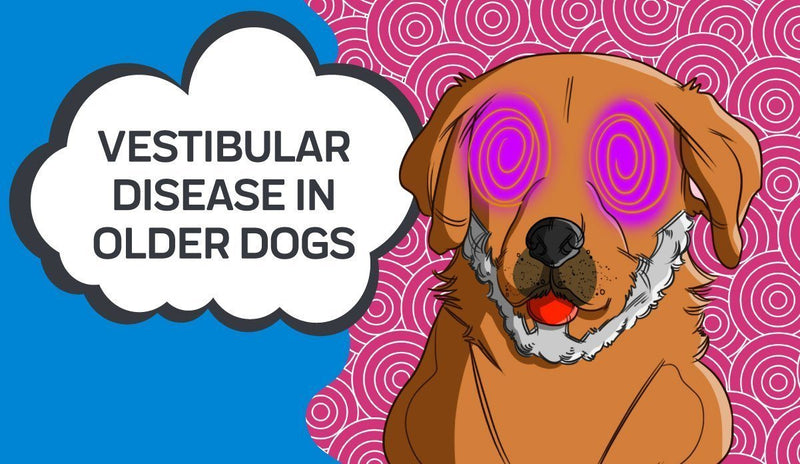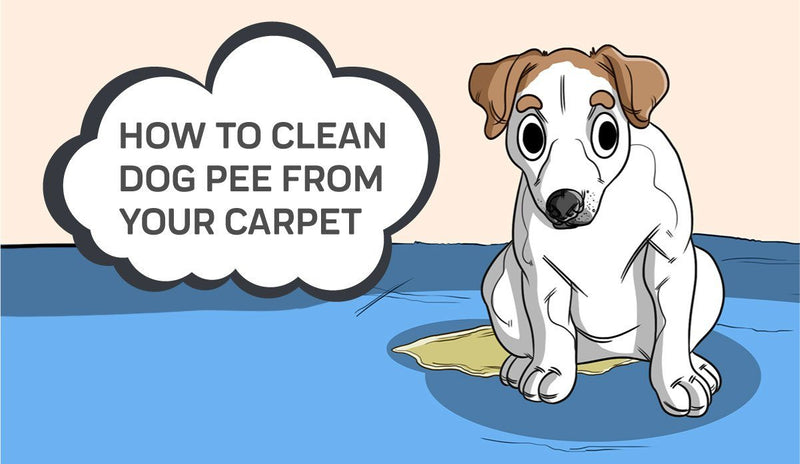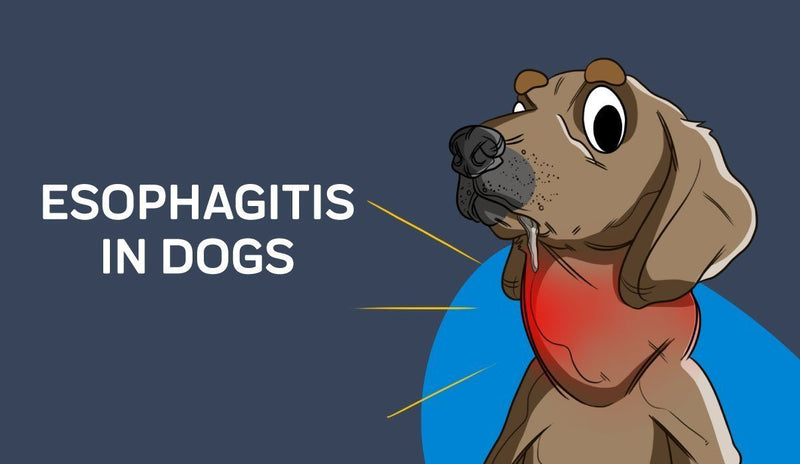
Kidney disease is when there are issues that are preventing the kidneys from functioning normally. There are several conditions that fall under the scope of kidney disease. Dogs can have kidney disease, and it can be very distressing to the pet parent. Of course, you want to know what to look out for and how to move forward in taking care of your precious pet. We want to help you understand everything there is to about kidney disease in dogs, so you are equipped to do what you need to do as a loving pet parent.
TABLE OF CONTENTS
1. Kidney Disease in Dogs: An Overview
2. Renal Failure in Dogs: What Occurs After Diagnosis
3. The Signs and Symptoms of Kidney Disease in Dogs
4. What Can Happen To My Dog If They Don't Get Veterinary Care?
5. Treatments For Kidney Disease in Dogs
6. Pet Caregiver Support Groups Can Help
7. Important Information About Diets For Dogs With Kidney Disease
8. Diet For Dog Kidney Failure and Kidney Disease Tips
9. Are There Other Treatments For Dogs With Kidney Disease?
10. What Else Can I Do For My Dog With Kidney Disease?
Kidney Disease in Dogs: An Overview
Renal failure is a health issue in both felines and canines. Renal failure is a term used for chronic kidney failure and is a type of kidney disease. Most older dogs and cats are at risk of developing renal failure.
Understanding how kidney disease in dogs happens is part of the process of learning about it. It is all about the biological processes that go on inside of their bodies. Their kidneys do work similarly to humans. The kidney is the body's filtration system and functions to secrete waste, reabsorb proper molecules and substances into the body, and ensure that all is working as it should for good health.
Nephrons are located in the kidney and help it to perform its filtration and secretion. If nephrons are not working the way they are intended, it can cause health issues for your pet. It could mean your pet is at risk for renal failure in dogs.
Renal Failure in Dogs: What Occurs After Diagnosis
The diagnosis of renal failure in dogs occurs after it is found that the nephrons in the kidney are not working in the way that they should. Renal failure in dogs often happens as part of aging. This means that senior dogs are at a much higher risk of developing renal failure or kidney disease. Pet parents of senior dogs will have to pay closer attention to the health and habits to ensure that they are not developing any issues.
Unfortunately, there is no cure for renal failure. It is progressive in nature and will continue to get worse over time. Kidney disease in dogs will progress in four stages. The creatine concentration levels in your dog's blood tests will slowly rise over time. This may not be noticed in the first two stages as it is not as progressive. However, at stage three of renal failure, it is often becoming apparent that the dog is suffering from symptoms. At stage four of renal failure in dogs, their kidneys are functioning at 10% or less, and they are in the end-stage of this form of kidney disease.
It causes the body to degrade over time slowly. Sometimes, renal failure and kidney disease in dogs can be survived for a number of years. Other times, it seems to happen quickly. It is vital to take your pet to regular veterinarian appointments if they are dealing with renal failure. Your veterinarian can give your dog a treatment plan that can help slow the progression of the disease and perhaps ease your pet's pain and symptoms. The sooner you get care for your dog, the better it is for everyone. Early diagnosis can play a big part in how your pet does overall. While there is no cure for renal failure in dogs, there are ways to treat it and help your dog be as comfortable as possible during the process.
Renal failure causes the entire body to go through major health issues. The kidney is responsible for regulating blood pressure, volume of blood, blood sugar, and more. It can also affect the hormonal balance in a dog's body. This means that the dog could begin displaying different moods and behaviors than what is normal for them. These personality changes are sometimes more noticeable than the symptoms of kidney failure in its early stages.
Certainly, pet owners don't always realize that their dog is experiencing kidney disease symptoms. There are some key signs and symptoms to look for that can help you in knowing when to take your dog to the veterinarian for a health check-up.
The Signs and Symptoms of Kidney Disease in Dogs

Most pet owners aren't exactly sure what signs and symptoms they need to look out for when it comes to kidney disease in dogs. At Innovet Pet, we want to ensure that every pet owner has the information that they need. It is never easy to have a pet suffering from health issues or worrying that they may be. This list of signs and symptoms of kidney disease in dogs can help you in figuring out if your pet should be taken for treatment at the veterinarian and checked for possible kidney problems.
- Lethargy
- Weight Loss
- Excessive Thirst
- Lack of hunger
- Blood in urine
- Seizures
- Frequent urination
- Vomiting
- Ulcers in the mouth
- Loss of vision
It is imperative that pet owners take their dogs to the vet as soon as possible if they notice especially alarming signs and symptoms. Excessive urination is a sign that your pet needs to be evaluated as quickly as possible for kidney disease. These signs of canine kidney disease are among the most common, and your dog may or may not experience some or all of these. However, excessive urination requires immediate emergency care at the veterinarian as it can be a sign that your dog is suffering kidney failure.
Dogs that are aging are among the most at-risk for kidney failure. Pet parents of senior dogs should consider getting their dog regular blood tests so that any health problems can be confronted as quickly as possible. Renal failure can be treated to slow down the progression of the disease, and this would be the ideal scenario.
What Can Happen To My Dog If They Don't Get Veterinary Care?
If a dog is not treated for kidney disease with veterinary care, it will likely progress faster. This is because veterinarians can prescribe treatments to help slow down the progression of the disease and treat symptoms. Dogs that do not receive care for their kidney disease will, unfortunately, pass away. It is chronic in nature and progressive, and there is no cure. If your dog has been diagnosed with kidney disease, it is of utmost importance to get them to a veterinarian as soon as possible to ensure that they get the care that they need.
For pet owners that do not have the funds to treat kidney disease in dogs, there are some options. It would be wise to call local veterinary offices and animal charities to see if they can help with services for your pet. If you explain that you are short on finances to treat your pet, they may be able to offer financial assistance to get your pet treated. For example, there are non-profit animal charities that help specifically with helping get veterinary care for pets. A good tip is to search for local, state, or regional non-profits in your area online and contact them as soon as possible. If you can't find any locally, there are national animal non-profits that may be able to assist. They understand that pet parents don't always have unlimited funds and want to do what they can to help, if possible.
Treatments For Kidney Disease in Dogs
There are treatments for kidney disease in dogs. The treatment will vary on the type of kidney disease, the severity of the disease, and what the veterinarian thinks is best for your dog in their individual situation.
If your dog has been experiencing excessive thirst and urination, there is a good chance that your veterinarian will want to administer IV fluids. This gives an infusion of vitamins and minerals and hydrates your dog to a healthier level. Your veterinarian will also likely give your dog other medications that they feel will be beneficial to your pet based on their observations and tests on your dog.
They will also likely prescribe medications for you to take home and give to your dog. In a majority of cases, the veterinarian will also likely prescribe some diet and lifestyle changes. It is imperative to follow each and every instruction that the veterinarian gives you as well as you can. Prescriptions should be followed as instructed as well. This is vital to the health and recovery of your beloved pet. It can be a bit confusing, at times. That is totally understandable. Most pet parents haven't had to take care of their animal through this type of health issue before. So, it is recommended to contact your veterinarian if you have any questions or concerns that need to be addressed right away.
Pet Caregiver Support Groups Can Help
Pet parents that are taking care of a chronically sick pet may experience anxiety, depression, or other issues of worry and stress. This is entirely normal and completely understandable. If you have a pet that has been diagnosed with kidney disease or another chronic condition, there are pet caregiver support groups that can help. It is important to remember to take care of yourself during all of this.
Pet caregiver support groups can be found online and sometimes in local communities. They offer a place for pet parents and caregivers to talk to one another and be supportive of each other in a time of need. It is very hard to take care of a sick pet, and this is a wonderful resource for any pet caregivers that need support and help.
Important Information About Diets For Dogs With Kidney Disease
Your veterinarian should give you instructions on the type of diet your dog should be eating with kidney disease. There are some important things that you need to know when feeding a dog with chronic kidney disease or renal failure listed below:
Too much calcium can cause added kidney damage
Their body will not be able to filter phosphates properly if the kidney disease progresses.
Protein may or may not need to be limited. The veterinarian will let you know if you need to feed your dog a protein-sparing diet. It is entirely dependent on the type of kidney disease.
DHA and EPA, found in some foods, can cause further kidney damage
Diet For Dog Kidney Failure and Kidney Disease Tips
Some diet tips for pet parents that have dogs with kidney disease and dog kidney failure can really help to make life easier for your dog.
Moist Foods
Dogs that have kidney disease and dog kidney failure can really benefit from eating moist foods. Dog foods can be moistened with water as well. This helps with the hydration issues that dogs with kidney problems have to deal with. They are often excessively thirsty and want to drink plenty of water. Therefore, moistening their food with water can be helpful.
Low-Phosphorous Foods
Foods that are low-phosphorous are great for dogs with kidney disease. This is because too much phosphorus in the body can cause electrolyte disturbance in the dog's blood and that is not good for kidney disease in dogs. Low-phosphorous foods are wise to give dogs with kidney problems as it will make it much easier on their kidneys in the long run.
High-Quality Low Protein Foods
Dogs that have renal failure or chronic kidney conditions should be fed high-quality foods that have low protein levels. Too much protein can cause the kidneys to have to do too much work and can cause issues with their health. Therefore, high quality and low protein are important.
If you are worried that you won't be able to feed your dog as well as they need to be, there are foods sold in stores that are specifically made for dogs with kidney disease. It is essential to look for these specific brands and types of foods if you want to ensure you are giving them the proper foods. Of course, your veterinarian can recommend a brand and class of dog food that would work well for their health and well-being.
Low Sugar Foods
Dog treats or foods with high sugar are not recommended for dogs with kidney problems. Too much sugar in their foods and treats can make their kidneys have to work much harder. This is because the kidneys are the body's filtration system. So, too much sugar will make the kidneys have to work harder to process the extra sugars and secrete them from the system properly. Low sugar foods and treats should be given to dogs with kidney failure to ensure that they are as healthy as they can be and so that their kidneys will not be having to take on any extra work.
Are There Other Treatments For Dogs With Kidney Disease?
It is undoubtedly essential to stick to your veterinarian's guidelines and recommendations for the treatment of your dog's kidney condition. However, there are some natural products that you can give to your pet as an addition to their veterinary treatment to alleviate some of their symptoms and discomforts while they are going through this. Innovet Pet's CBD Oil For Dogs is an example of a natural product that you can give your pet to help with their symptoms and alleviate some of their aches and pains. CBD is an all-natural, chemical-free oil that is derived from hemp. There are no pesticides or chemicals to worry about. Pet parents also don't have to stress that their dogs will be getting high, either. It has 0% THC, so that definitely means your dog won't be getting the high that people think of at all. It is totally safe and has no known side effects. CBD has been studied extensively and has proven to be safe for use in dogs.
This means that they will get all of the benefits without having some of the terrible side effects that other medications have. It is a smart and healthy option for pet parents that worry about giving their dogs chemicals that could be harmful to their health. An all-organic and natural product can alleviate pet parent concerns. CBD has shown itself to be very helpful with many health conditions and may be able to help your pet going through a chronic kidney disease. For example, it has been shown in studies to be able to assist very well with inflammation in the body, nausea, anxiety, and pain.
What Else Can I Do For My Dog With Kidney Disease?
At Innovet Pet, we understand just how hard it is for pet parents to see their dogs in pain. Kidney disease and chronic kidney conditions are very difficult to deal with. The best thing that you can do is make the best choices that you can, research thoroughly, and follow the instructions of the veterinarian. Make sure to consult with a trusted veterinarian about anything that you are concerned about and keep them informed at all times about any changes or problems in your dog's health or behavior. As always, give your pet plenty of attention and affection as that can almost always be guaranteed to make them feel better.

















